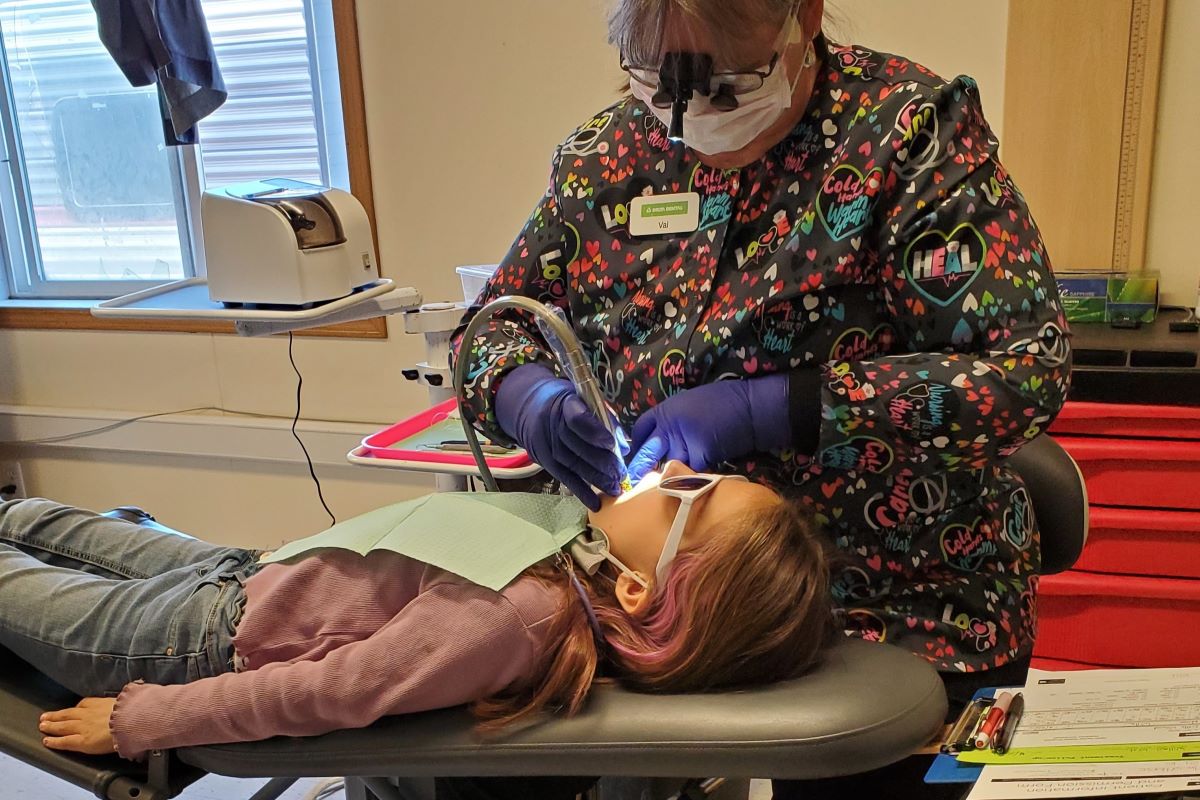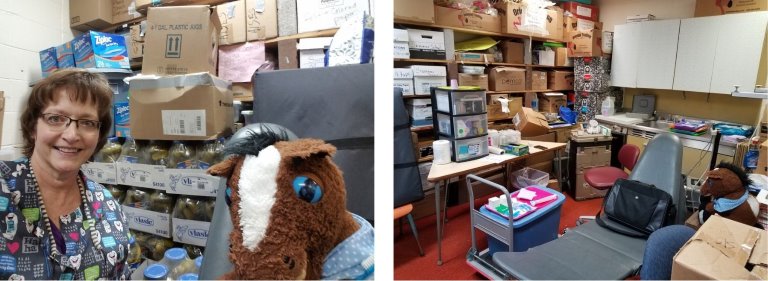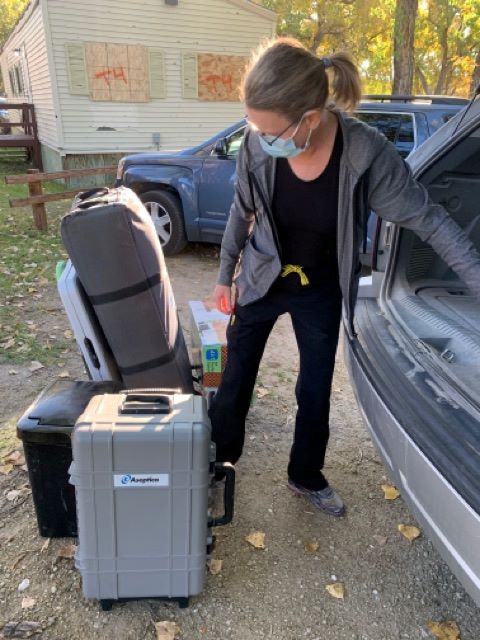DDSD dental hygienists transform children's access to care in ten-year public health outreach
For ten years, dental hygienists from Delta Dental of South Dakota have worked in a unique public oral health program to help children on Native American Reservations in the state. To date, they’ve reached more than 18,000 kids with preventive care and oral health education.
Their efforts have improved access to care, lowered dental costs, and reduced surgeries needed for extraordinary cases. In more personal terms, kids have fewer cavities and have avoided the pain of advanced decay that can affect learning, eating, and speaking.
Working with local schools and Head Start programs to host the clinics, the hygienists use portable equipment in a spare space at the location to do oral health screenings, cleanings, fluoride varnish treatments, and apply dental sealants.
The spare spaces sometimes make for unique care settings – in locker rooms, school nurse's offices, storage rooms, and hallways. All of which make for a “no such thing as a typical day” experience for the staff dedicated to caring for kids.
Because they don’t work in a typical dental practice under the supervision of a dentist, the hygienists provide care under what’s called a collaborative supervision agreement that allows preventive care to be provided in such public health settings in consultation with a dentist.
In addition to clinical services, dental hygiene education for children and families and referrals to further care by dentists are also provided by the hygienists and community health workers who provide support to the program.
Truly mobile care, it’s not usual for each hygienist to travel thousands of miles every year. One of the hygienists with the program since its start has driven 160,000 miles caring for kids in western South Dakota.
The effort began in 2013 as a special project funded by a $3.3 million 3-year grant from the U.S. Centers for Medicare & Medicaid Services awarded to DDSD to hire and place oral health staff on the Reservations to provide care.
In the first three years of federal grant funding, the percentage of children through age 9 who’d had a dental visit increased 64%. The percentage who’d had a cleaning or fluoride varnish increased more than 75%, and the percentage who’d had dental sealants doubled. Over the same period, the average dental care costs per child decreased by 27%.
When grant funding ended after the initial 3 years of the program, DDSD continued to fund the ongoing operation of the work as part of its mission to improve oral and overall health in South Dakota.
While data supports the program as a valuable public health effort, the reward is much more personal for staff who make a difference every day one patient at a time.
“I will always be grateful that the people of Pine Ridge have so willingly placed their trust in me to care for their kids,” says Val Kavanaugh, a dental hygienist who has worked on the Pine Ridge reservation since 2013. “The kindness and generosity they’ve shown me has been inspiring.”




